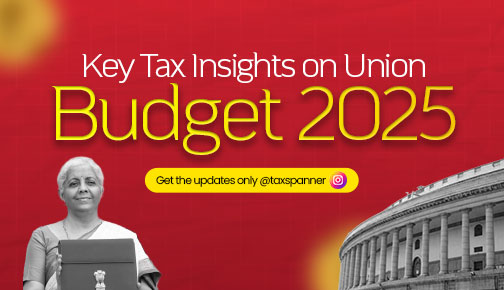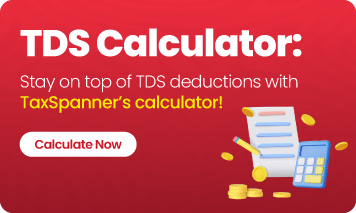TDS on Contractor and Sub-Contractor Payments: Key Provisions of Section 194C
When it comes to paying contractors or sub-contractors, businesses and individuals need to be aware of the relevant provisions of the Income Tax Act. Section 194C plays a pivotal role in the tax landscape, specifically addressing the TDS (Tax Deducted at Source) requirements on payments made for works contracts. If you are a taxpayer or business dealing with contractors, understanding Section 194C is essential to make sure compliance and avoid penalties. In this blog, we’ll break down everything you need to know about Section 194C, including TDS rates, deductions, and key provisions.
What Is Section 194C of the Income Tax Act?
Section 194C of the Income Tax Act mandates that any individual or entity making payments to contractors or sub-contractors must deduct tax at source (TDS) from the payments. The section covers a wide range of work contracts, including those related to advertising, catering, manufacturing, and transport services, to name a few.
The TDS provisions are applicable to payments made to a contractor or sub-contractor for carrying out work on behalf of specified entities, such as:
- Central Government or any State Government
- Local authorities
- Statutory corporations
- Public sector companies
- Co-operative societies
It also includes foreign entities that may be involved in contracting work within India.
What Qualifies as ‘Work’ Under Section 194C?
Under Section 194C, ‘work’ can include a wide array of activities such as:
- Advertising and broadcasting
- Transport services (excluding railways)
- Catering services
- Manufacturing products according to customer specifications
Understanding the scope of ‘work’ under this section is crucial because it impacts which contracts fall under its provisions. The key takeaway is that any contract related to the supply of labour or the completion of a specific task by a contractor qualifies under Section 194C.
Who is Considered a Sub-Contractor?
A sub-contractor, as defined under Section 194C, is any person who enters into a contract with the primary contractor to execute part or all of the work. This could involve supplying labour or fulfilling contractual obligations related to a larger project. In essence, a sub-contractor carries out a portion of the work or provides labour for a larger contract entered into by the contractor.
When Should TDS Be Deducted Under Section 194C?
TDS under Section 194C should be deducted either at the time of:
- Crediting the amount to the contractor's account
- Making a payment (cash, cheque, or any other mode)
The earlier of the two events should be considered for TDS deduction. It’s important to note that TDS applies even if the payment is credited to a suspense account within the payer’s books of account.
TDS Rates Under Section 194C
The rate of TDS varies depending on the type of payment and the recipient's status. Here’s a breakdown of the TDS rates under Section 194C:
| Nature of Payment | TDS Rate (If PAN Available) | TDS Rate (14/5/2020 to 31/3/2021) | TDS Rate (If PAN Not Available) |
|---|---|---|---|
| Payment/Credit to Resident Individual or HUF | 1% | 0.75% | 20% |
| Payment/Credit to any Resident Person (Other than Individual or HUF) | 2% | 1.5% | 20% |
| Payment/Credit to Transporters | NIL | NIL | 20% |
The TDS rate is reduced in some cases, like payments to transporters, where no TDS is applicable if the transporter owns less than ten goods carriages. However, if the PAN is not available, a higher TDS rate of 20% will apply.
TDS Deduction Thresholds Under Section 194C
The deduction limits under Section 194C are as follows:
- Single Payment: No TDS is required if the payment does not exceed Rs. 30,000.
- Aggregate Payment for the Year: TDS will apply if the total annual payment exceeds Rs. 1,00,000.
For instance, if a contractor receives multiple payments during the financial year, TDS applies if the aggregate amount exceeds Rs. 1,00,000, even if individual payments are below the Rs. 30,000 threshold.
Exceptions to TDS Deduction Under Section 194C
There are certain exceptions where TDS is not required under Section 194C:
- Payments for Personal Use: TDS is not applicable if the payment made to the contractor or sub-contractor is for personal use (i.e., non-business purposes).
- Payments to Transporters: If the transporter owns 10 or fewer goods carriages, they are exempt from TDS on submission of a declaration and PAN.
- Composite Contracts: If a contract involves both labour and material supply, TDS is calculated on the gross payment unless the value of materials is separately specified in the contract.
Compliance and TDS Filing
To stay compliant with Section 194C, the following points must be adhered to:
Depositing TDS
For Government Payments
TDS must be deposited on the same day.
For Other Payments
If the payment is credited in March, TDS must be deposited by April 30th. For other months, the payment should be deposited within 7 days from the end of the month.
TDS Certificates
TDS certificates (Form 16A) should be issued on a quarterly basis for non-salary payments. The deadlines for issuing these certificates are:
- April to June: By 15th August
- July to September: By 15th November
- October to December: By 15th February
- January to March: By 15th June
These certificates must be generated via the TIN system and authenticated with a digital signature or manual signature.
TDS at Lower Rates
In certain situations, a contractor or sub-contractor may request a lower TDS rate by applying to the Assessing Officer (AO). If the AO is satisfied that the contractor’s total income justifies a lower deduction, they may issue a certificate for a lower TDS rate. This certificate can then be furnished to the deductor to ensure the correct TDS is deducted.
In conclusion, Section 194C of the Income Tax Act outlines the rules for TDS on payments to contractors and sub-contractors. Understanding the scope of work, the TDS rates, and the compliance requirements will help you stay on the right side of the law. Whether you are a business paying contractors or a contractor receiving payments, it’s essential to be aware of the TDS obligations under this section to avoid penalties and make sure smooth financial operations.
By staying up to date with the TDS provisions under Section 194C, businesses can minimize risks and make sure that their contracts with contractors and sub-contractors are handled in full compliance with the Income Tax Act.
Explore TaxSpanner's wide range of calculators for your tax planning and calculations!
View Tools & Calculators





